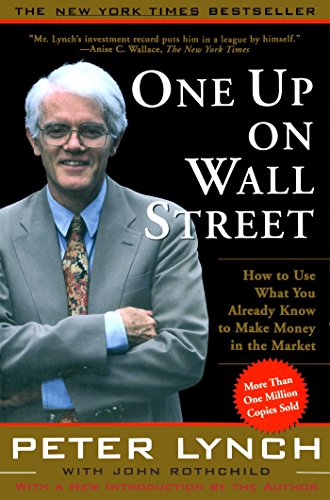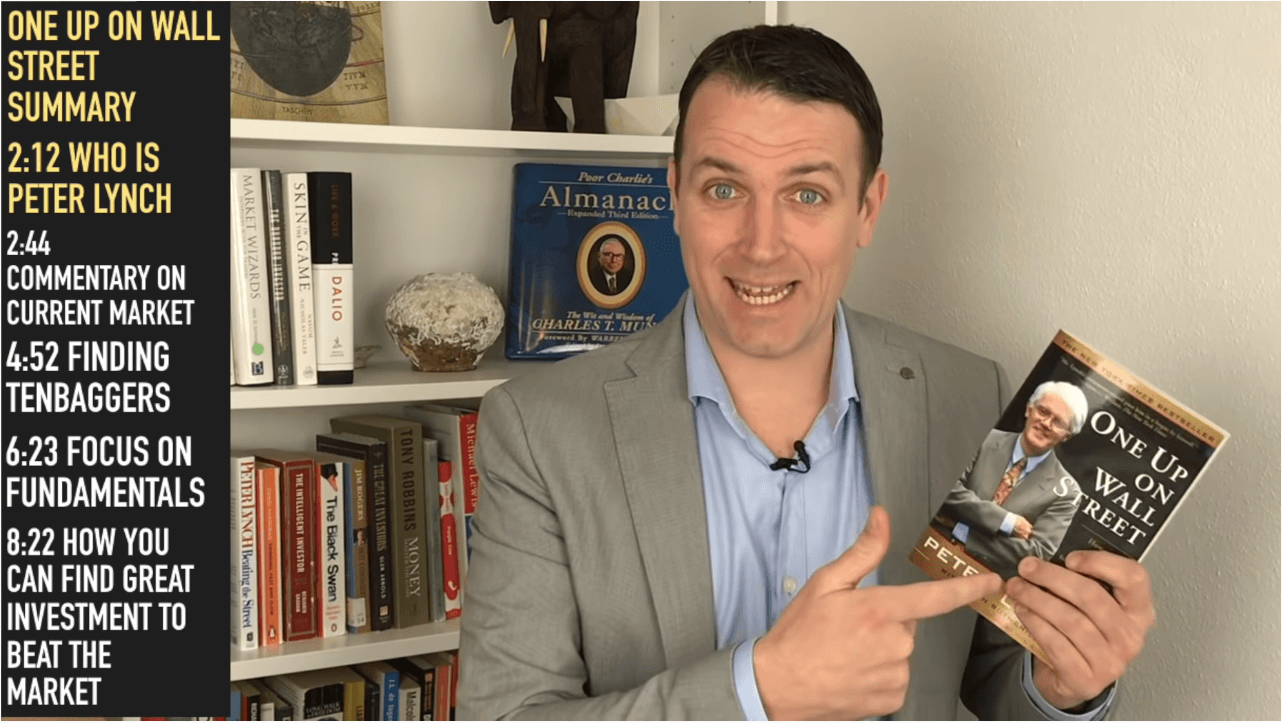



Their subsequent performance doesn't seem to have followed any pattern. Lynch traveled to Sweden and met with the management of Volvo, which was trading at $34 despite having $34/share in cash and several profitable subsidiaries.Įach book contains a list of stocks that significantly outperformed the market during the 1970s and '80s. In 1984, the American stock market had rallied 50% from its lows but European stocks were still very cheap.

Lynch interpreted that as a sign of deeper problems at EQK and decided not to recommend the stock.īeating the Street also describes Lynch's foray into European investments. In a quarterly earnings report, the company suggests that it might forgo additional dividend increases. One company that he considered recommending at the Barron's roundtable, EQK Green Acres, had increased its dividend every quarter during the prior three years. (I generally enjoy this kind of "time capsule" book.) It's interesting to read about Lynch's logic for buying or not buying certain stocks. Many people consider Beating the Street a poor relation of One Up on Wall Street, but I liked it somewhat better. He also points out that being able to invest in smaller, lesser-known stocks is a big advantage for individual investors. He argues that investors should avoid complexity and invest in companies they can understand, be wary of Wall Street's conflicts of interest, and be skeptical of analyst recommendations. In other words, stocks always go up in the long run, expect for the mediocre ones that don't, so you should stick to investing in wonderful companies that do go up, except when they're overvalued, but whether or not the market is overvalued doesn't matter.įortunately, some of Lynch's other advice is more straightforward. With no way to 'live up to these expectations,' the price fell from $75 to $25." In 1972 stock was bid up to a precarious 50 times earnings. Stocks are most likely to be accepted as prudent at the moment they’re not." (emphasis his)Īrguing that events like the October 1987 crash don't affect long-term returns, Lynch writes: " Whether it’s a 508-point day or a 108-point day, in the end, superior companies will succeed and mediocre companies will fail, and investors in each will be rewarded accordingly."īut he also claims that " wonderful companies become risky investments when people overpay for them. Historically, stocks are embraced as investments or dismissed as gambles in routine and circular fashion, and usually at the wrong times. " n the late 1920s that common stocks finally reached the status of 'prudent investments,' whereas previously they were dismissed as barroom wagers-and this was precisely the moment at which the overvalued market made buying stocks more wager than investment.įor two decades after the Crash, stocks were regarded as gambling by a majority of the population, and this impression wasn't fully revised until the late 1960s when stocks once again were embraced as investments, but in an overvalued market that made most stocks very risky. At the beginning of One Up on Wall Street, he writes: " As I’ve noted on prior occasions: 'That’s not to say there’s no such thing as an overvalued market, but there’s no point worrying about it.'" Like Warren Buffett, Lynch is a talented investor, but like Buffett, he's created a folksy public persona that misleads investors into thinking investing is simpler than it really is.īeyond that, much of Lynch's advice is vague and contradictory. In the introduction to Beating the Street, Lynch recommends that income-seeking investors put their money in stocks, since stocks produce higher long-term returns than bonds, and generate income by selling a portion of their shares each year. Beating the Street fleshes out these principles by providing case studies of the stocks that Lynch recommended in the 1992 Barron's roundtable.īoth books have a dangerous "stocks are always a great investment" theme. One Up on Wall Street explains the investment principles that Lynch used during his market-beating tenure as the manager of Fidelity's Magellan Fund. I recently finished two books by Peter Lynch: One Up on Wall Street, his late-1980s bestseller, and Beating the Street, which he published in 1993.


 0 kommentar(er)
0 kommentar(er)
